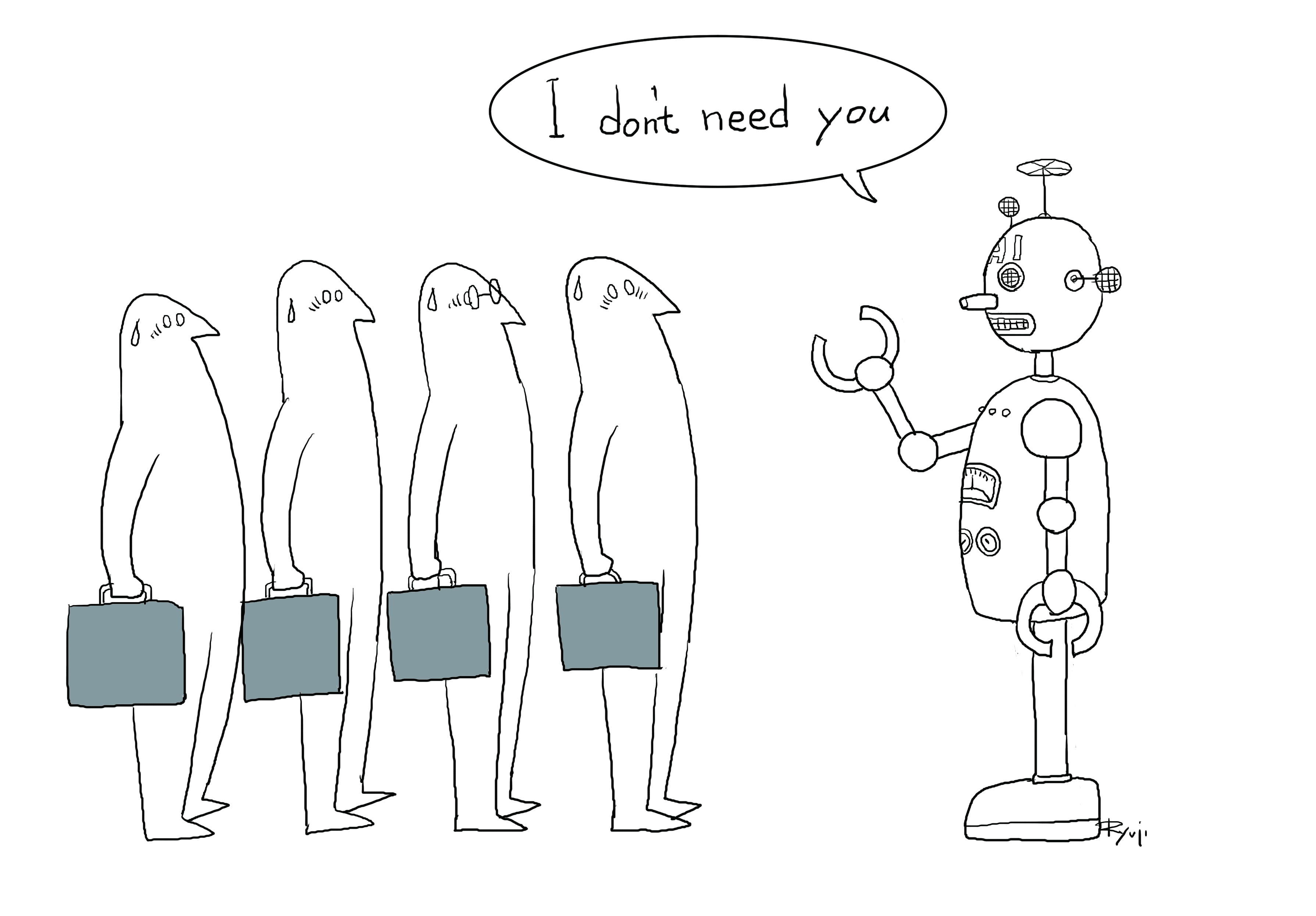Major changes on a scale that could occur only once every half century are taking place quietly but surely. These changes are called "Industry 4.0" or the fourth industrial revolution. It is an industrial revolution that uses artificial intelligence and robots in such a way that manufacturing plants will become unmanned and a majority of office jobs will be made unnecessary.
In March, an AI player of the board game go, developed by Google and named AlphaGo, defeated the world's leading professional go player 4 games to 1. The pro lost the first three games, and although he won the fourth, he was defeated in the fifth round. The decisive factor that led to the victory for AlphaGo was its "deep learning" capability. The more games it played, the better the AI player's skills became through the deep learning process.
A large majority of office workers are replaceable, according to research conducted jointly by the Nomura Research Institute and scholars, including Michael Osborne, an associate professor at Oxford University. The main thrust of the research was that 49 percent of Japan's workforce can be replaced by AI and robots, as it looked into the replaceability by computer-related technologies of human work in 601 job categories.


















With your current subscription plan you can comment on stories. However, before writing your first comment, please create a display name in the Profile section of your subscriber account page.